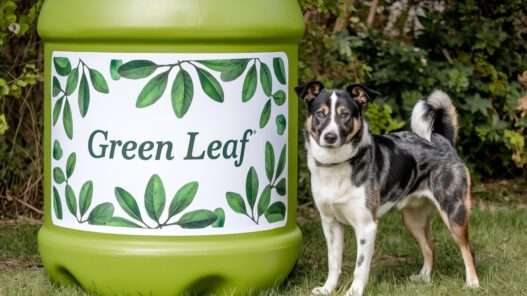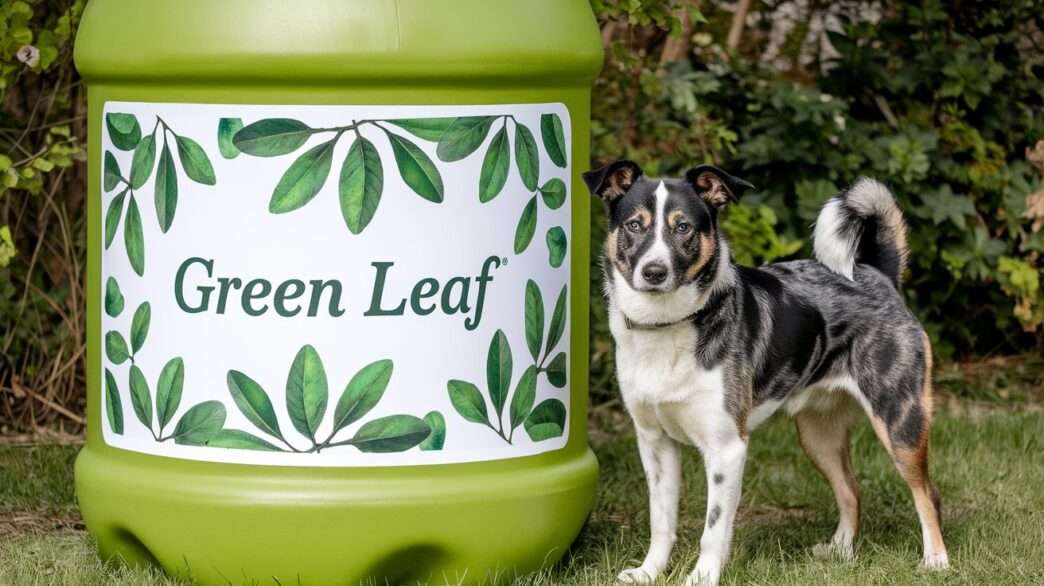What is Peppermint Oil?
Peppermint oil is an essential oil extracted from the peppermint plant, known for its strong, minty aroma. It’s commonly used for its soothing properties, helping with headaches, digestive issues, and muscle pain, as well as in aromatherapy and as a flavoring in food and beverages.
Peppermint oil can offer several potential benefits for dogs when used properly and in moderation. Here’s a detailed look at how peppermint oil might be helpful for your dog:
1. Relief from Digestive Issues
– Nausea and Upset Stomach: Peppermint oil can help soothe a dog’s upset stomach, reduce nausea, and alleviate symptoms of bloating or gas. It’s sometimes used as a natural remedy for dogs with mild digestive issues.
2. Respiratory Support
– Congestion Relief: The menthol in peppermint oil can act as a natural decongestant, helping dogs with respiratory issues by clearing nasal passages and easing breathing.
3. Pain Relief
– Muscle and Joint Pain: Peppermint oil has natural analgesic (pain-relieving) properties. When diluted and applied topically, it may help reduce discomfort from muscle soreness, joint pain, or arthritis in dogs.
4. Insect Repellent
– Natural Pest Deterrent: Peppermint oil can act as a natural repellent for fleas, ticks, and other pests. When diluted and used correctly, it can be applied to your dog’s coat to help keep insects at bay, though care must be taken to avoid overuse.
5. Stress and Anxiety Relief
– Aromatherapy: The soothing scent of peppermint oil can help reduce anxiety and stress in dogs. When used in aromatherapy, it can create a calming environment, making it helpful during stressful situations like thunderstorms, vet visits, or travel.
6. Oral Health
– Fresh Breath and Oral Care: Peppermint oil is sometimes used to help freshen a dog’s breath and may contribute to oral health by reducing bacteria in the mouth. However, it should only be used in very small, diluted amounts.
7. Skin Care
– Itching and Irritation: When diluted properly, peppermint oil can be applied to a dog’s skin to help soothe itching, irritation, or minor rashes. Its cooling effect can provide relief from discomfort caused by allergies or insect bites.
Important Considerations
– Dilution is Key: Peppermint oil is very potent and should always be diluted before use on dogs. A typical dilution ratio is one drop of peppermint oil to a carrier oil (like coconut oil) for topical application. Never apply undiluted essential oils to your dog’s skin or allow them to ingest it directly.
– Consult Your Vet: Before using peppermint oil, especially if your dog has pre-existing health conditions, it’s essential to consult your veterinarian. Some dogs may have sensitivities or adverse reactions to peppermint oil, and it should be used cautiously.
Avoid Certain Areas:
Peppermint oil should never be applied near a dog’s eyes, nose, or mouth, as it can cause irritation. It’s also important to avoid using it around pregnant dogs, puppies, or dogs with specific health issues unless advised by a vet.
Is Peppermint Essential Oil Safe for my Dog?
Peppermint essential oil can be safe for dogs when used properly. It should always be diluted with a carrier oil before application, typically one drop of peppermint oil to a tablespoon of carrier oil. Use it topically for issues like muscle pain or insect repellent, and avoid sensitive areas like the eyes and nose.
Inhaling the scent in a well-ventilated space can help with stress or respiratory issues. However, it should never be ingested, and some dogs may have sensitivities. Consult your vet before using peppermint oil, especially if your dog has health conditions or is pregnant.
Real vs Synthetic Essential Oil:
Real Essential Oils are extracted from plants and contain natural compounds, offering therapeutic benefits but are usually more expensive. Synthetic Essential Oils are chemically produced and may contain additives, are less costly, but may lack the full benefits of natural oils.
Can Dogs Have Pepper Mint Oil?
Dogs can have peppermint oil, but it must be used with caution. It should always be diluted with a carrier oil before topical application and never ingested. Some dogs might be sensitive to it, so consult your vet before use, especially if your dog has health issues or is pregnant.
How to Safely Use Peppermint Oil for Dogs?
To safely use peppermint oil for dogs:
1. Dilute Properly: Mix 1 drop of peppermint oil with 1 tablespoon of a carrier oil (like coconut or olive oil) before applying it to your dog’s skin.
2. Topical Application: Apply the diluted oil to specific areas like sore muscles or itchy spots. Avoid sensitive areas such as the eyes, nose, and mouth.
3. Aromatherapy: Use a diffuser in a well-ventilated area to let your dog benefit from the scent. Ensure your dog can leave the room if they find it overwhelming.
4. Avoid Ingestion: Do not let your dog ingest peppermint oil, as it can be toxic.
5. Monitor for Reactions: Watch for any signs of irritation or adverse reactions, such as itching or redness. Discontinue use if any issues arise.
6. Consult Your Vet: Always check with your veterinarian before using peppermint oil, especially if your dog has health issues or is pregnant.
Frequently Asked Questions About Peppermint for Dogs
Common Questions About Using Peppermint with Dogs
Do Dogs Like Peppermint?
Dogs’ reactions to peppermint can vary. Some are drawn to its fresh, minty scent, while others may not show much interest or might even dislike it. It’s important to observe your dog’s response to peppermint and ensure they’re comfortable with the scent before introducing peppermint oil or peppermint-infused products.
How Much Peppermint is Harmful to Dogs?
Peppermint oil is very concentrated, so even small amounts can be risky if not used correctly. For topical applications, a safe dilution is 0.5%-2% peppermint oil mixed with a suitable carrier oil. Never use undiluted peppermint oil directly on your dog.
Can Dogs Drink Peppermint Tea?
Peppermint tea can be safe for dogs when cooled and given in moderation. It might help with digestion and ease stomach issues. Ensure the tea is plain and free from added sugars or artificial sweeteners like xylitol, which is toxic to dogs.
Can Dogs Have Peppermint Candy?
Peppermint candy is not suitable for dogs. It usually contains sugar, artificial sweeteners like xylitol, and other ingredients that could be harmful. Opt for dog-safe alternatives, such as diluted peppermint oil, for any therapeutic benefits.
Is Peppermint Safe for Puppies?
Peppermint oil should be used very cautiously with puppies due to their sensitive skin and mucous membranes. Consult a holistic veterinarian before using any essential oils with puppies and ensure proper dilution and application.
What if My Dog Swallows Undiluted Peppermint Oil?
Ingesting undiluted peppermint oil can cause irritation or toxicity. Contact your veterinarian immediately if this happens. Wash any product off your dog’s skin or fur promptly, and bring the product packaging to the vet. Always keep essential oils out of your dog’s reach and never apply concentrated oil directly on your pet.
Can Peppermint Oil Help with Fleas?
Peppermint oil has natural flea-repelling properties, but it must be properly diluted and used with caution. For a more comprehensive flea control approach, consider combining peppermint oil with other natural oils like cedarwood or lavender, and consult with a holistic veterinarian.
Is It Safe to Use Peppermint Oil in a Diffuser Around My Dog?
Yes, you can use peppermint oil in a diffuser, provided the room is well-ventilated and your dog has the option to leave if needed. Use only 1-2 drops of oil and monitor your dog for any signs of discomfort or adverse reactions.
By addressing these questions, you can use peppermint and peppermint oil safely and effectively for your dog. Always opt for high-quality, pure essential oils and seek veterinary advice for the best results.




























I\’m so glad I found your site. Your posts are consistently excellent.
I\’m truly grateful for your support. Your positive feedback keeps me motivated.
Your content is a go-to source for me when I need information. Great work, as always!
Your dedication to providing quality content is truly admirable. I\’m a fan of your work.